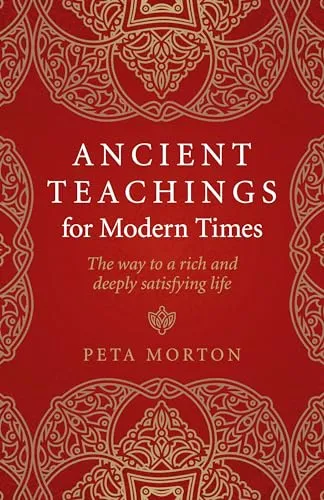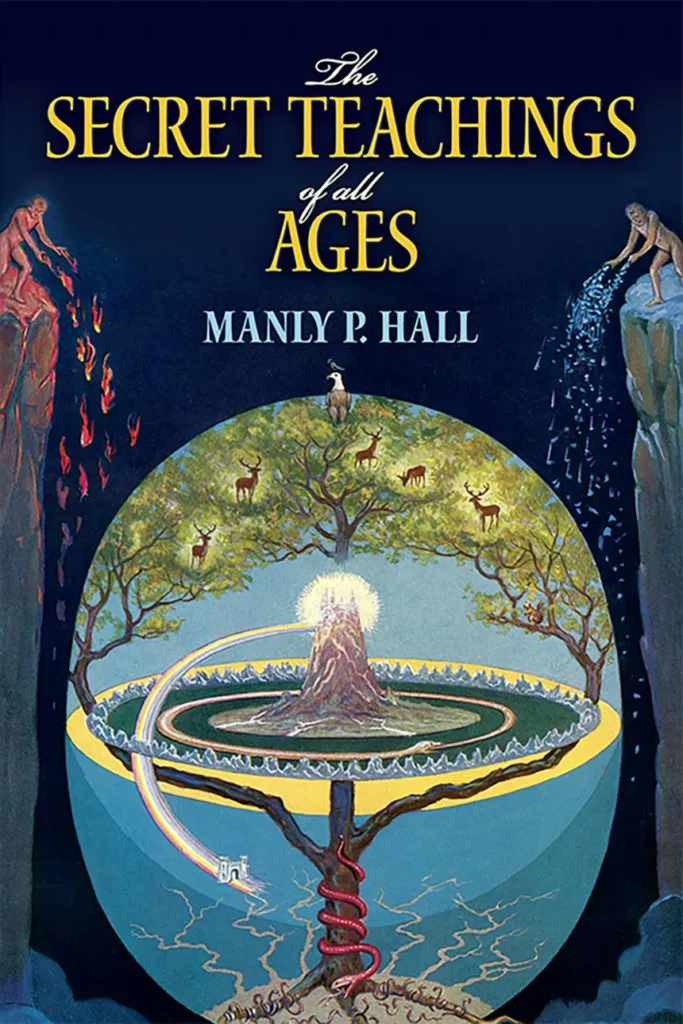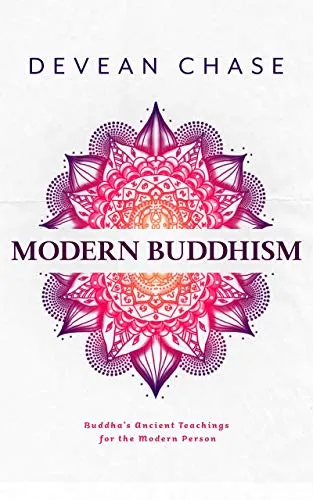Ancient Teachings and Philosophies for Modern Life
Humanity has long sought understanding, balance, and wisdom, with each age adding to the collective insights that guide us toward fulfillment and self-realization.
Ancient teachings and philosophies remain invaluable, offering perspectives on life that transcend time and cultural boundaries.
These teachings reflect universal truths that speak to our deepest yearnings, providing pathways for spiritual growth, inner peace, and enlightenment.
This article explores some of the enduring teachings from Eastern and Western traditions, revealing the transformative power of ancient wisdom in our lives today.
The Eternal Quest for Wisdom
Philosophies and teachings from civilizations across time have tried to address life’s most profound questions: What is the nature of existence? How do we live a good life? What is the path to inner peace? While each tradition approaches these questions differently, the insights and principles they offer serve as guides in our journey to understanding and self-realization.
The Stoic virtues, the Eightfold Path of Buddhism, and the Taoist way of harmony with nature all invite us to deepen our awareness, embrace acceptance, and nurture resilience. Exploring these teachings reveals not only practical approaches for navigating life but also a timeless wisdom that connects us to humanity’s collective quest for enlightenment.

1. Stoicism: Cultivating Inner Strength and Tranquility
Stoicism, a philosophy that emerged in ancient Greece around the 3rd century BCE (before the common era), remains a pillar of Western thought. Founded by Zeno of Citium, Stoicism teaches that the path to happiness lies in accepting the moment as it is, cultivating virtue, and controlling what we can while letting go of what we cannot. Stoic teachings emphasize the idea that we find freedom not in changing external circumstances but in mastering our responses.
At the heart of Stoicism are four cardinal virtues: **wisdom, courage, justice, and temperance.** Each virtue serves as a foundation for living a life of purpose and integrity.
Wisdom helps us discern right from wrong and make thoughtful decisions.
Courage encourages us to face challenges without fear.
Justice guides us to treat others with fairness and respect.
Temperance reminds us to practice moderation and self-discipline.
A key Stoic principle is the concept of amor fati, or “love of fate.” This idea encourages embracing all aspects of life, including suffering, as opportunities for growth. By accepting life’s inevitable ups and downs with resilience, Stoicism teaches that we become stronger and more content.
For those seeking peace and clarity in the modern world, Stoicism offers an empowering way to approach daily challenges with calmness and resolve.
2. Buddhism: The Path to Inner Peace and Compassion
Originating in ancient India in the 6th century BCE, Buddhism provides a detailed path to inner peace through the teachings of Siddhartha Gautama, known as the Buddha. Buddhism centers on understanding and alleviating suffering through awareness, ethical conduct, and mental discipline. The Four Noble Truths form the foundation of Buddhist philosophy:
1. The Truth of Suffering – Life, in its various forms, inevitably includes suffering.
2. The Cause of Suffering – Suffering arises from desire and attachment.
3. The End of Suffering – Freedom from suffering is possible.
4. The Path to End Suffering – Following the Eightfold Path can lead to liberation.
The Eightfold Path Right Understanding, Right Intention, Right Speech, Right Action, Right Livelihood, Right Effort, Right Mindfulness, and Right Concentration—is the guiding framework for ethical and mindful living. This path encourages compassion, humility, and mindfulness, qualities that nurture a sense of interconnectedness with all beings.
One powerful aspect of Buddhist wisdom is the practice of mindfulness. By staying present and observing our thoughts and emotions without judgment, we learn to release attachment and find peace within ourselves. This practice of mindfulness has gained widespread popularity in recent years, with scientific studies showing its effectiveness in reducing stress and enhancing overall well-being.
Buddhist philosophy encourages us to live with compassion and embrace the impermanent nature of life. By letting go of attachment and focusing on cultivating kindness and awareness, Buddhism provides a path toward greater inner peace and resilience.

3. Taoism: Embracing Harmony with Nature
Taoism, rooted in Chinese thought and originating in the 4th century BCE, focuses on living in harmony with the Tao, or “the Way.” Attributed to the sage Laozi, author of the Tao Te Ching, Taoism teaches that peace and fulfillment come from aligning with the natural flow of the universe rather than resisting it.
Central to Taoist philosophy is the concept of wu wei, or “effortless action.” Wu wei suggests that we should not struggle against the natural order but instead act in harmony with it. This principle encourages a state of “flow,” where we work with, rather than against, the forces around us.
In Taoism, there is a profound reverence for nature and the belief that humans are part of a greater whole. The Taoist symbol of yin and yang represents the dualities that exist in all things—light and dark, masculine and feminine, active and passive. Embracing these dualities as complementary forces allows us to appreciate the balance inherent in life.
Taoism reminds us to approach life with openness, simplicity, and humility. By embracing the flow of life rather than resisting it, Taoism offers a way to experience tranquility and inner balance, even amidst chaos.
4. Vedanta: Realizing Oneness and Transcendence
Vedanta, one of the oldest philosophical systems, originated from the Vedic texts of ancient India and explores the nature of reality and self. Central to Vedanta is the idea that Atman (the individual soul) and Brahman (the universal consciousness) are one. This unity suggests that our true nature is beyond the physical body and mind, connected to the entire universe.
In Vedantic thought, self-realization is the ultimate goal, achieved by transcending the ego and understanding the interconnectedness of all things. Practices like meditation, introspection, and self-inquiry help practitioners experience this oneness directly.
Vedanta encourages us to look beyond our limited identities and seek a higher awareness of who we are. The concept of maya, or illusion, explains that the world we perceive is not the ultimate reality but a limited view shaped by our perceptions. By realizing this, Vedanta invites us to free ourselves from illusions and align with our higher, true selves.
In today’s world, where individualism and ego-driven pursuits often take precedence, Vedanta offers a path toward humility, peace, and a profound sense of unity with all creation.
5. Indigenous American Teachings: Wisdom of the Earth
Indigenous teachings and philosophies from Aboriginal American cultures offer a deep respect for nature and the interconnectedness of all beings. Rather than a single, unified philosophy, Aboriginal American wisdom encompasses diverse traditions, each with unique beliefs and practices. However, a common theme is the belief that all life is sacred and that humanity has a responsibility to live in harmony with the Earth.
The concept of walking in balance is a guiding principle in many Aboriginal American teachings, emphasizing that harmony with nature leads to personal and communal well-being. The idea that humans are caretakers of the Earth, tasked with preserving its beauty and resources for future generations, fosters a sense of stewardship and interconnectedness.
Traditional ceremonies and practices, such as smudging and sweat lodges, aim to purify the mind and spirit, helping practitioners connect with the spiritual world and find balance within themselves. Aboriginal teachings remind us of our place within the broader cycle of life, urging us to act with respect, gratitude, and responsibility toward the Earth and all its inhabitants.
These ancient teachings resonate deeply in today’s environmental and social justice movements, offering guidance for living sustainably and ethically within a greater whole.

Transforming Our Lives with Ancient Wisdom
The teachings and philosophies of ancient cultures offer us pathways toward greater wisdom, peace, and self-understanding. Whether through the disciplined virtues of Stoicism, the mindful compassion of Buddhism, the harmonious flow of Taoism, the transcendental oneness of Vedanta, or the earth-centered spirituality of Aboriginal American traditions, these ancient insights serve as powerful tools for personal growth.
Incorporating these teachings into our lives need not be overwhelming; we can begin with small steps. Practicing mindfulness, reflecting on our values, seeking harmony with nature, and nurturing compassion in our relationships are all ways to honor and integrate these timeless principles.
As we face the complexities and challenges of the modern world, ancient wisdom reminds us of what truly matters. These teachings offer us not only guidance but also the potential for transformation, allowing us to live with purpose, resilience, and inner peace.
They remind us that wisdom is not about amassing knowledge but about understanding and living with integrity, compassion, and a deep sense of connectedness with all that exists.
In our quest for wisdom, these ancient philosophies serve as lanterns lighting the way, encouraging us to look beyond the material, embrace the spiritual, and connect with the enduring truths that make life meaningful. So, let us journey through life with an open heart and mind, always ready to learn from the past to create a brighter, more enlightened future.
Sources:
Esotericism:
Secret Decoded: Exploring the Esoteric Realm by Steafon Perry: The article explores the timeless knowledge of Eastern and Western philosophies that continue to influence human understanding and self-realization. It delves into the wisdom found in diverse spiritual and philosophical traditions, from the Stoicism of ancient Greece to the Buddhist teachings of mindfulness and compassion.
Stoicism:
1. Meditations” by Marcus Aurelius – A foundational text of Stoic philosophy, exploring principles of self-discipline, acceptance, and resilience.
2. “The Daily Stoic” by Ryan Holiday and Stephen Hanselman: This book provides practical applications of Stoic teachings, bringing ancient principles into modern-day contexts.
3. Stanford Encyclopedia of Philosophy – Entry on Stoicism provides a comprehensive overview of the history, principles, and key thinkers of Stoicism.
Buddhism:
1. “The Heart of the Buddha’s Teaching” by Thich Nhat Hanh – A modern interpretation of Buddhist teachings, including the Four Noble Truths and the Eightfold Path.
2. “What the Buddha Taught” by Walpola Rahula – An introduction to fundamental Buddhist philosophy by a prominent Buddhist scholar.
3. The British Library, Sacred Texts Collection – This includes translations of ancient Buddhist texts, such as the Dhammapada and Sutras, which outline core Buddhist teachings.
Taoism:
1. “Tao Te Ching” by Laozi – The primary text of Taoist philosophy, exploring the principles of wu wei (effortless action) and harmony with nature.
2. “The Book of Chuang Tzu” translated by Martin Palmer – This classic Taoist text discusses themes of spontaneity, harmony, and balance with nature.
3. Internet Encyclopedia of Philosophy – Taoism – Provides a summary of key Taoist principles, major texts, and historical impact.
Vedanta:
1. “The Upanishads” translated by Eknath Easwaran – Core texts in Vedanta philosophy, discussing concepts such as Atman (self) and Brahman (universal consciousness).
2. “Bhagavad Gita” translated by Eknath Easwaran – A central text in Vedanta, presenting teachings on self-realization, duty, and spiritual wisdom.
3. Vedanta Society’s resources – Many Vedanta societies offer texts, lectures, and commentaries by Swami Vivekananda and other Vedantic scholars.
Native American Teachings:
1. “The Sacred Pipe” by Black Elk – A compilation of traditional Lakota beliefs and spiritual practices by a revered Native American holy man.
2. “Braiding Sweetgrass” by Robin Wall Kimmerer – This book explores Indigenous wisdom and the importance of living in harmony with nature.
3. Library of Congress – Native American Philosophy – Various resources on Native American philosophies, including wisdom traditions and practices of different tribes.

Notable Indigenous Philosophers
- Kyle Whyte: A Potawatomi philosopher and professor at Michigan State University, Whyte has written extensively on Indigenous philosophy, environmental justice, and decolonization.
- Krushil Watene: A Māori philosopher and researcher, Watene has explored Māori concepts of social justice and compared them to Potawatomi and Ubuntu perspectives.
By engaging with Aboriginal American philosophies, we can deepen our understanding of the complex and rich cultural heritage of the Americas, and work towards greater mutual respect, cooperation, and sustainability.
Further Reading:
- On Stoicism:
- Meditations by Marcus Aurelius is a cornerstone of Stoic thought, offering reflections on self-discipline, resilience, and virtue. Written by the Roman emperor Marcus Aurelius, this work offers personal insights on coping with life’s challenges and fostering inner peace. You can explore it through
ps://www.britannica.com/topic/
directly read the text at The Internet Classics Archive.
- Project Gutenberg provides a free, comprehensive version of Meditations as well, accessible here.
- Meditations by Marcus Aurelius is a cornerstone of Stoic thought, offering reflections on self-discipline, resilience, and virtue. Written by the Roman emperor Marcus Aurelius, this work offers personal insights on coping with life’s challenges and fostering inner peace. You can explore it through
- Teachings of Confucius:
- Confucian philosophy centers around ideas of social harmony, duty, and moral uprightness. You can find extensive insights into Confucianism, which has influenced Eastern philosophy profoundly, on .
- Taoist Wisdom:
- The Tao Te Ching by Laozi is another fundamental text that teache
ture and simplicity. Britannica has an overview , and a complete version of the text can be accessed through reputable online archives such as Project Gutenberg.
- The Tao Te Ching by Laozi is another fundamental text that teache
- Principles of Buddhism:
- Buddhism, rooted in the teachings of Siddhartha Gautama, emphasizes mindfulness
hment from material desires. For in-depth exploration, you may refer to the basic principles detailed on and deeper discussions in texts like The Dhammapada available on academic archives and Project Gutenberg.
- Buddhism, rooted in the teachings of Siddhartha Gautama, emphasizes mindfulness